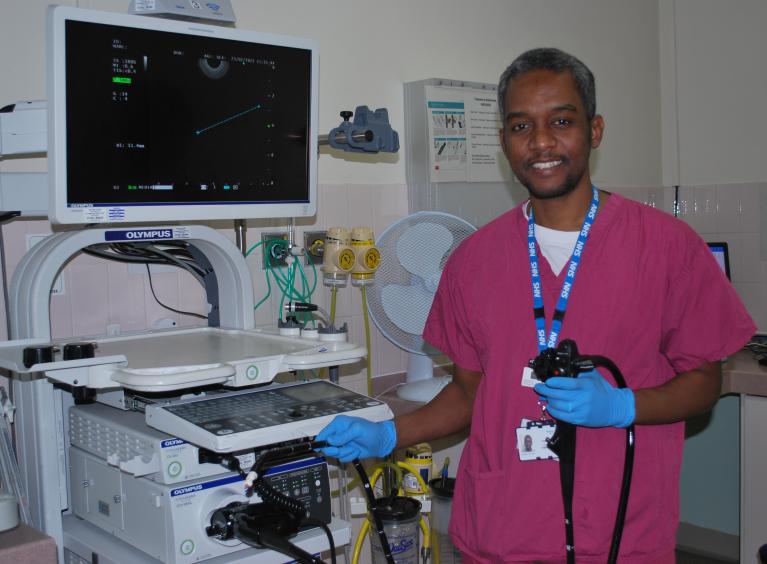Our Emergency Department is very busy right now and some people are experiencing long waits. If you do not require emergency care, please use an alternative such as 111 online.
Endoscopic Ultrasound (EUS) is a minimally invasive procedure to assess diseases of the digestive tract and other nearby organs and tissues. The technique combines the use of a thin, flexible tube (endoscope) inserted into the gastrointestinal tract and a device that uses sound waves to create images (ultrasound).
Dr Ahmed explained: “The high-frequency sound waves produce detailed images of the digestive tract and surrounding organs and tissues, including the lungs, pancreas, gall bladder, liver and lymph nodes.
“An endoscopic tube may also have a small needle to remove fluid or tissue samples (biopsy) for examination in a lab. This procedure is called EUS-guided fine-needle aspiration or EUS-guided fine-needle biopsy. Other EUS-guided procedures can be used to drain fluid from a lesion or inject a drug at a specific site.”
Exciting development for Barnsley
Dr Ahmed was instrumental in introducing EUS at Barnsley. He said: “Some organs you can’t access from outside the body, such as the pancreas which is behind the stomach. But if you go into the stomach using ultrasound you are able to see the pancreas and obtain biopsies more easily.
“EUS and EUS-guided procedures can be used, for example, to assess damage to tissues due to inflammation or disease, or determine whether cancer is present or has spread.”
EUS can also prevent the need for other high-risk procedures like ERCP (a test to examine the tubes that drain bile from the liver) in patients suspected to have small biliary stone (gallstone). Dr Ahmed said: “It is a real skill for clinicians to use this procedure because not only do you have the endoscope view, you have the ultra sound too. We undergo extensive training to carry out the technique.”
Now Barnsley is making a business case to buy another specialised endoscope (one scope costs £83,000) and has employed another clinician to ensure the service can run regularly.
Dr Ahmed added: “The need for EUS is increasing as we continue to get a lot of referrals for cancer patients. The Barnsley service prevents people from having to go to another centre like Sheffield so is more convenient. It’s a very exciting development.”

